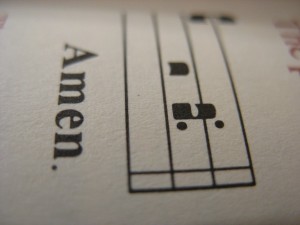The Congregation for Divine Worship and the Discipline of the Sacraments has issued a Homiletic Directory. Archbishop Roche’s introduction can be found on The Bishops’ Conference News site. There is an interview with him on Vatican Radio.
This fulfils a request for such a directory made at the Synod of Bishops on the Word of God in 2008.
The Contents are as follows:
++++
Introduction
PART ONE: THE HOMILY AND ITS LITURGICAL SETTING
- THE HOMILY
- INTERPRETING THE WORD OF GOD IN THE LITURGY
III. PREPARATION
PART TWO: ARS PRAEDICANDI
- THE PASCHAL TRIDUUM AND THE FIFTY DAYS
- The Old Testament Reading on Holy Thursday
- The Old Testament Reading on Good Friday
- The Old Testament Readings of the Easter Vigil
- The Easter Lectionary
- THE SUNDAYS OF LENT
- The Gospel of the First Sunday of Lent
- The Gospel of the Second Sunday of Lent
- The Third, Fourth, and Fifth Sundays of Lent
- Palm Sunday of the Lord’s Passion
III. THE SUNDAYS OF ADVENT
- The First Sunday of Advent
- The Second and Third Sundays of Advent
- The Fourth Sunday of Advent
- THE CHRISTMAS SEASON
- The Liturgies of Christmas
- The Feast of the Holy Family
- The Solemnity of Mary, the Mother of God
- The Solemnity of the Epiphany
- The Feast of the Baptism of the Lord
- THE SUNDAYS IN ORDINARY TIME
- OTHER OCCASIONS
- Weekday Mass
- Weddings
- Funerals
APPENDIX I: THE HOMILY AND THE CATECHISM OF THE CATHOLIC CHURCH
Cycle A
Cycle B
Cycle C
Other Holy Days
APPENDIX II: POST-CONCILIAR ECCLESIAL SOURCES RELEVANT TO PREACHING
++++
The Directory will be available from the website of the Congregation and will be published by the Catholic Truth Society.

